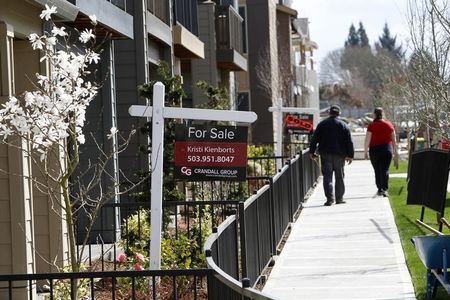By Jason Lange
WASHINGTON (Reuters) - U.S. consumer spending accelerated in August, the government said on Monday, a positive sign for an economy that appears to be firing on nearly all cylinders.
The housing sector remains an exception, however, with a separate report showing Americans signed fewer contracts in August to purchase previously owned homes.
Nevertheless, the rise in household spending offered the latest suggestion that years of exceptionally low interest rates have finally pushed the economy into a higher gear.
Consumer spending rose 0.5 percent last month after being unchanged in July, the Commerce Department said. The growth in August was just above the median forecast in a Reuters poll of economists.
Millan Mulraine, an economist at TD Securities in New York called the data "a further signal that the positive momentum in domestic activity is being sustained."
Even after adjusting for inflation, spending was 0.5 percent higher, the biggest gain since March. Growth in personal income ticked up 0.3 percent, in line with forecasts.
Some of the strength in spending came from a decrease in the saving rate, which eased back from a 1-1/2-year high in July.
On Wall Street, housing shares (HGX) fell even more than the broader stock indexes, which were down sharply as investors focused attention on civil unrest in Hong Kong.
INFLATION MUTED
Most investors are betting the U.S. Federal Reserve will raise interest rates next year to keep inflation in check, although Monday's data gave little sign of growing price pressures.
The Fed's preferred gauge of inflation was up 1.5 percent in August from a year earlier, down slightly from the reading in July, the Commerce Department data showed. A measure of underlying price pressures which strips out food and energy held at 1.5 percent. That reading had dipped to 1.2 percent earlier this year.
Some policymakers at the U.S. central bank remain concerned that inflation appears stuck well below their 2 percent target.
Chicago Federal Reserve Bank President Charles Evans repeated on Monday his argument that the Fed should be patient when it comes to raising rates.
Data on Friday showed the economy grew at its fastest pace in 2-1/2 years in the second quarter. Still, the housing sector has struggled to recover from the 2007-09 recession when a home price bubble deflated.
In August, contracts to purchase previously owned U.S. homes fell 1.0 percent, the National Association of Realtors said.

The pending home sales index plunged last year after mortgage interest rates spiked, although it has been on a rising trend since this past March.
(Reporting by Jason Lange; Additional reporting by Elvina Nawaguna in Washington and Ann Saphir in Chicago; Editing by Andrea Ricci)
